President Ho Chi Minh received Jean Sainteny - representative of the French Government and General Philippe Leclerc - Head of the French military delegation, who came to greet him at the Bac Bo Palace, March 1946. (Source: Ho Chi Minh Museum) |
During the period 1945 - 1973, Vietnamese diplomacy had three important historical stages, in which diplomacy played a very important role: 1945-1946 to avoid conflicts with the Chinese Nationalist army (Chiang Kai-shek's army) and the French army, maintain the revolutionary government and take advantage of time to prepare for resistance against the French; 5/1954-7/1954: Geneva Conference on restoring peace in Indochina and; 1967-1973: Paris Conference.
Phase 1945 - 1946
Immediately after the August Revolution, 200,000 troops of the Chinese Nationalist Party entered the North, the French army returned to provoke and invade the South. There were conflicts of interest between the Chinese Nationalist Party and the French, and there were also conflicts within the French and Chiang Kai-shek armies. But they had a common goal of destroying our young revolutionary government. The French were determined to restore colonial rule in Vietnam and Indochina. The generals leading the Chiang Kai-shek army entered Vietnam with the aim of "destroying the communists and capturing Ho", destroying the communists and capturing Ho Chi Minh.
At that time, Uncle Ho was both the President and the Minister of Foreign Affairs. While the state apparatus was still very simple, lacking in staff, and the work was very new, most of the diplomatic activities of the Party and Government were directed and directly implemented by him.
On November 25, 1945, facing the situation of the Chiang army and its lackeys in the north increasing oppression, the French army attacking heavily in the south, Uncle Ho and the Central Party Standing Committee issued a directive, identifying: the main enemy is the invading French colonialists, the most important task is to consolidate the government, fight against the invasion, eliminate internal rebels, improve people's lives, "In terms of diplomacy, persistently pursue diplomatic policies with other countries on the principle of "equal and mutual assistance". We must pay special attention... to making our country have fewer enemies and more allies... With China, we still advocate friendly relations between the Chinese and Vietnamese, considering overseas Chinese as the most favored nation; with France, political independence, economic concessions" [1].
Smashing the plot to "destroy communists and capture Ho"
On September 11, 1945, Tieu Van, the commander of the Chiang army, arrived in Hanoi and, seeing that the revolutionary government had been established, declared: “Ho Chi Minh committed ten great sins”. Uncle Ho still took the initiative to visit him. Uncle Ho’s courage, intelligence and diplomatic skills had a strong impact on him. A French historian wrote: “President Ho Chi Minh met Tieu Van and achieved peace with the Chinese army, stopping the first attempt of the Chinese army to overthrow the provisional government, which made the “Viet Quoc” and “Viet Cach” [2] confused and faltering” [3].
On September 23, 1945, Uncle Ho took the initiative to meet Lu Han, who was also the commander of the Chiang army. Understanding the internal conflicts within the Chiang army and Lu Han's hatred of the French, Uncle Ho made Lu Han think about his own situation, promising not to intervene if we could maintain order and security, and not overly support the "Viet Quoc" and "Viet Cach" groups.
In addition to contacting and influencing the generals of the Chiang army, President Ho Chi Minh mobilized the masses to demonstrate their strength and power. On October 3, 1945, Ha Ung Kham, Chief of the General Staff of the Chinese Nationalist Army, and General Robert A. McClure, commander of the US army in China, entered Hanoi. We organized a large parade to welcome the Allied mission. Three hundred thousand people, well organized, marched through the former Governor's Palace, shouting slogans: "Vietnam belongs to the Vietnamese", "Support the Provisional Government of the Democratic Republic of Vietnam", "Support President Ho Chi Minh"...[4]
Uncle Ho also focused on winning over the Chiang army. He instructed diplomatic cadres to have appropriate countermeasures for each type. With high-ranking generals, Uncle Ho created opportunities for them to realize their personal interests. Knowing their weakness of greed for money, we made them have a lot of money without us having to spend a penny [5].
Thus, with three main groups of measures, demonstrating revolutionary forces, leading sudden attacks, taking advantage of conflicts within the enemy ranks and creating conditions for the enemy to satisfy material interests, Uncle Ho directed and directly crushed the plot of "destroying communism and capturing Ho" of Chiang's army and his henchmen.
President Ho Chi Minh and members of the Provisional Government after the first Government meeting, September 3, 1945. (Source: Chinhphu.vn) |
Peace with Chiang Kai-shek to keep power and resist the French
Realizing that Chiang's army had to deal with the Chinese Communist Party, they could not harbor ambitions to occupy Vietnamese territory. They wanted economic benefits and plotted to use the occupation of the north of our country to force France to make concessions on some economic and political benefits, pushing France to confront our government. Uncle Ho and the Party Central Committee's Standing Committee advocated reconciliation with Chiang, cleverly avoiding conflicts, and implementing the slogan "China - Vietnam friendly".
Although the Chiang army had no ambition to occupy territory, it still strongly supported the puppet forces. Nguyen Hai Than, the leader of these groups, made very high demands in the negotiations to establish a coalition government. Uncle Ho had to use very drastic measures. The Indochinese Communist Party declared its own dissolution (in fact, it withdrew into secrecy). Some ministers representing the Viet Minh in the interim government had to voluntarily withdraw to make room for representatives of other parties... Uncle Ho also agreed to reserve 70 seats (out of a total of 350 seats in the National Assembly) for "Viet Quoc" and "Viet Cach" without a general election; Nguyen Hai Than held the position of Vice President, "Viet Quoc" and "Viet Cach" had seats in the Ministry of Foreign Affairs, Economy... in the coalition government.
Uncle Ho also responded to the request of the Chiang army, providing them with food, but with clear levels and principles. Speaking at the Diplomatic Conference in 1964, Uncle Ho said: He and Nguyen Manh Ha, then Minister of Economy, went to see Tieu Van. He demanded that Uncle Ho provide the full amount of food he requested. Uncle Ho replied: Our people are starving, providing like this is the maximum, it cannot be more. With such a tough answer, they had to stop [6].
To make peace with the Chiang army, there were times when Uncle Ho had to exercise extreme restraint. When Uncle Ho and Mr. Huynh Thuc Khang, then Minister of the Interior, went to meet Lu Han. He arrogantly interrogated him for more than an hour. When leaving, Mr. Huynh said: “He despises us too much, we can’t stand it anymore, just fight and then whatever happens will happen!” Uncle Ho had to tell him privately: “Now in our country, there are 200,000 Chinese Nationalist troops, and some Vietnamese Nationalist troops ready to seize power, we need to take advantage of the time to consolidate the government, and then we will see what happens later. Now we have to implement the “Goujian” policy [7].
With the above strategies, we were able to make peace with Chiang and neutralize his henchmen. In early December 1945, Chiang Kai-shek announced that he would withdraw his troops from Indochina to focus on dealing with the Chinese Communist Party. But Chiang still wanted to "drag on" to force France to make concessions on its interests.
Peace with France to expel Chiang
On February 28, 1946, the Sino-French Agreement was signed. Accordingly, France was given the right to replace Chiang's troops in northern Indochina, France handed over to Chiang the concessions in Shanghai, Tianjin, Hankou, Guangdong... and accepted Chiang's request to turn Hai Phong into a free port, and Chiang's goods transported through northern Vietnam were exempt from taxes. In order for the troop replacement to take place smoothly, France wanted to reach an agreement with Vietnam, avoiding military conflicts with Chiang's troops and our troops. However, the Vietnamese Nationalist Party forces plotted to incite the people to rise up against France in order to push the revolutionary government into a confrontation with both Chiang and France. Internally, there were also opinions suggesting to fight decisively or withdraw to the war zone, organizing long-term guerrilla warfare.
With the motto: Do not fight hand-to-hand with the invaders and traitors, Uncle Ho and the Central Party Standing Committee decided: Make peace with France to push the Chinese army to withdraw from Vietnam in accordance with the spirit of the Sino-French Treaty. If the Chinese army withdraws, the Vietnamese traitors must also withdraw. Make peace with France to gain time to prepare for the fight against France. Accordingly, Uncle Ho closely directed the contacts between us and France. At the same time, he personally communicated with the French side and made strategic decisions.
During February 1-3, 1946, representatives of the Democratic Republic of Vietnam and the French Republic held secret meetings. There was no progress because France was determined not to recognize Vietnam's independence and unity. On March 5, 1946, the French fleet reached the Gulf of Tonkin. The commander of Chiang's army declared that if the French army landed in Hai Phong before the Vietnam-France Agreement, Chiang's army would fire. The army and people of Hai Phong were ready to fight the French. The "Viet Quoc" plotted a sneak attack to ignite the war.
On the evening of March 5, 1946, the representative of Chiang's army came to see Uncle Ho and for the first time made it clear: if we sign a treaty with France, they will support us. As soon as Chiang's representative left, the French representative arrived immediately, expressing his desire to reach an agreement with us that same evening. Uncle Ho judged that there must have been a problem between Chiang and France, but they had already settled it. The opportunity had come, we continued to discuss with France until 2 a.m., demanding that France recognize Vietnam's independence and acknowledge the decisions of the referendum on the unification of the three regions. France did not agree on the issue of independence. Uncle Ho declared a break, and continued the discussion the next day.
Early in the morning of March 6, 1946, the first French landing ship entered the mouth of the Cam River, the Chiang army opened fire, the French army returned fire, a Chiang army arsenal caught fire, both sides suffered losses. In Hanoi, Chiang urged us to reach an agreement with the French. The French army was also impatient. The situation was developing rapidly. If we did not reach an agreement, perhaps the French and Chiang would compromise because neither side wanted conflict. If we did not reach an agreement, the French and our army and people would directly conflict with each other.
Faced with that situation, Uncle Ho suggested that a preliminary agreement could be signed if France recognized Vietnam as a free country. The French side accepted and asked Uncle Ho to represent the Democratic Republic of Vietnam to sign the agreement. Uncle Ho agreed but requested that there must be an additional signature from the representative of the Kuomintang group in the name of the Government Council, and that the signing ceremony must be witnessed by the Chiang Kai-shek Army Command in northern Indochina, the American mission, the British consul and Mr. Louis Capet (Uncle Ho said he considered him a representative of the French people). The French side accepted.
The agreement accepted 15,000 French troops to occupy for 5 years in exchange for pushing 200,000 Chiang Kai-shek troops and their henchmen out of Vietnam, creating conditions for us to continue negotiations with France. At the same time, it bought time to strengthen and consolidate the resistance forces in the south, preparing forces for the resistance in the north.
One week after the Agreement was signed, Chiang announced that he would begin withdrawing troops from March 15 and end on March 31, 1946 (in reality, the withdrawal was not completed until September 18, 1946).
President Ho Chi Minh and Jean Sainteny listen to the reading of the content of the Preliminary Agreement before the official signing, March 6, 1946. (Photo: Archive) |
Prolonged truce with France to prepare for resistance
Immediately after the Preliminary Agreement was signed, Uncle Ho directed many measures to urge France to open official negotiations to prolong the truce. Regarding the location, our target was Paris so that we could open a political, diplomatic, and public opinion struggle right in the heart of France, gaining the support of the people of the world, especially the French people. On March 13, 1946, Uncle Ho sent a message requesting the French side to immediately open official negotiations, co-wrote a letter to the people of the whole country, governments and people of the world, denouncing the French side for actions contrary to the spirit of the Agreement.
On March 14, 1946, one hundred thousand people in Hanoi rallied to demand that France stop its aggression and immediately open official negotiations in Paris. He also met with Georges Thierry d'Argenlieu, the French High Commissioner, and persistently fought to defend our position, while at the same time, cleverly taking advantage of the conflict between Georges Thierry d'Argenlieu and Jean Sainteny, the representative of the French government in northern Indochina, and Philippe Leclerc, the Commander-in-Chief of the French army in Indochina. The French side agreed to hold official negotiations in France at the end of May 1946.
On April 16, 1946, our National Assembly delegation led by comrade Pham Van Dong went to France to officially negotiate with the French government at Fontainebleau. On May 31, 1946, Uncle Ho officially visited France to directly direct our diplomatic struggle, while at the same time “…promoting Vietnam, winning the sympathy of the French people and the world” [8]. In France, Uncle Ho had extensive contact with the people, the French and foreign press, businessmen, our compatriots in France and French politicians, making them understand the situation in Vietnam, the determination of the Vietnamese people to fight for independence and national unification.
In parallel with closely directing our diplomatic struggle, on July 22, 1946, Uncle Ho sent a letter to Marius Moutet, the French Minister of Overseas Affairs. In August 1946, Uncle Ho sent a letter to Georges Bidault, the French Prime Minister, stating our demands and clearly analyzing the benefits and harms to France if it did not meet those demands. When the Conference was deadlocked and had to be adjourned on August 1, 1946, Uncle Ho continued to discuss directly with Georges Bidault. and Marius Moutet, tried to get the Conference to resume. Afternoon of September 10, 1946. The Conference met again, but still did not achieve any results because the French side deliberately sabotaged it, making many demands that we could not accept.
On the afternoon of September 13, 1946, our delegation left France to return home. Faced with an extremely serious situation: if there was no agreement, war could break out immediately, Uncle Ho and our delegation could also face danger on the way back to the Fatherland, Uncle Ho decided to make concessions. On September 14, 1946, Uncle Ho met Georges Bidault again. and Marius Moutet. That night, Uncle Ho, Marius Moutet and Jean Sainteny reviewed each clause of the draft and signed with Marius Moutet the Vietnam - France Provisional Agreement on September 14, 1946. This was the necessary and only correct choice when the situation was extremely tense, we had more time to prepare for resistance, and at the same time gained more support from the French people and the people of the world[9]. After signing the Provisional Agreement, Uncle Ho asked the French Government to arrange for him to return home by sea.
[1] Party historical documents, Ho Chi Minh National Academy of Politics, volume IV, page 10. 11
[2] Vietnam Nationalist Party and Vietnam Revolutionary Party, two Vietnamese forces, lackeys of the Chiang Kai-shek army
[3] Philippe Deville: History of Vietnam 1940-1952, Xoi Publishing House, Paris 1952, p. 124
[4] Institute of International Relations, Ministry of Foreign Affairs; “President Ho Chi Minh and diplomatic work”, ST Publishing House 1990, p.78
[5] Diplomatic History Research Board, Ministry of Foreign Affairs, “Uncle Ho and diplomatic activities, some memories about him”, ST Publishing House, 2008, p.54
[6]- [7] Record of President Ho's speech at the Third Diplomatic Conference, January 14, 1964, archived document, Ministry of Foreign Affairs
[8] Nguyen Luong Bang: Memoirs of “Uncle Ho”, Literature Publishing House, Hanoi, 1975, p.82
[9] Institute of International Relations, Ministry of Foreign Affairs; “President Ho Chi Minh and diplomatic work”, ST Publishing House 1990, p.110.
Source: https://baoquocte.vn/bac-ho-voi-ngoai-giao-nhung-quyet-sach-trong-thoi-diem-sinh-tu-cua-dan-toc-ky-i-320296.html



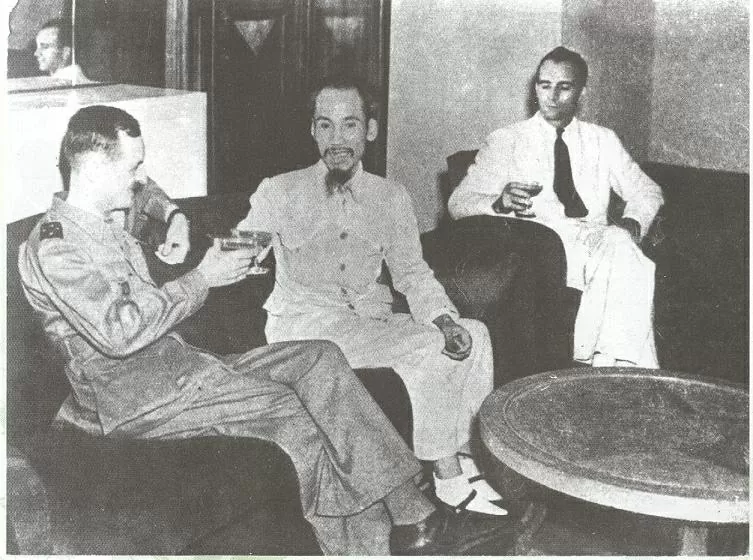
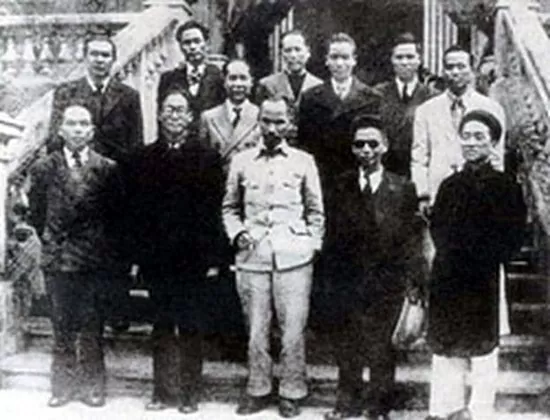
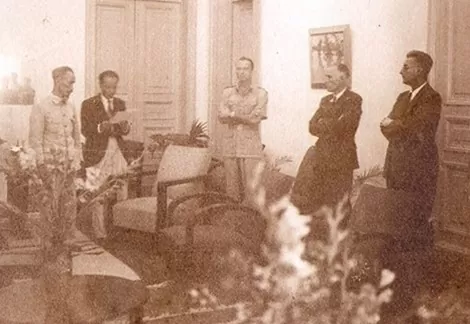
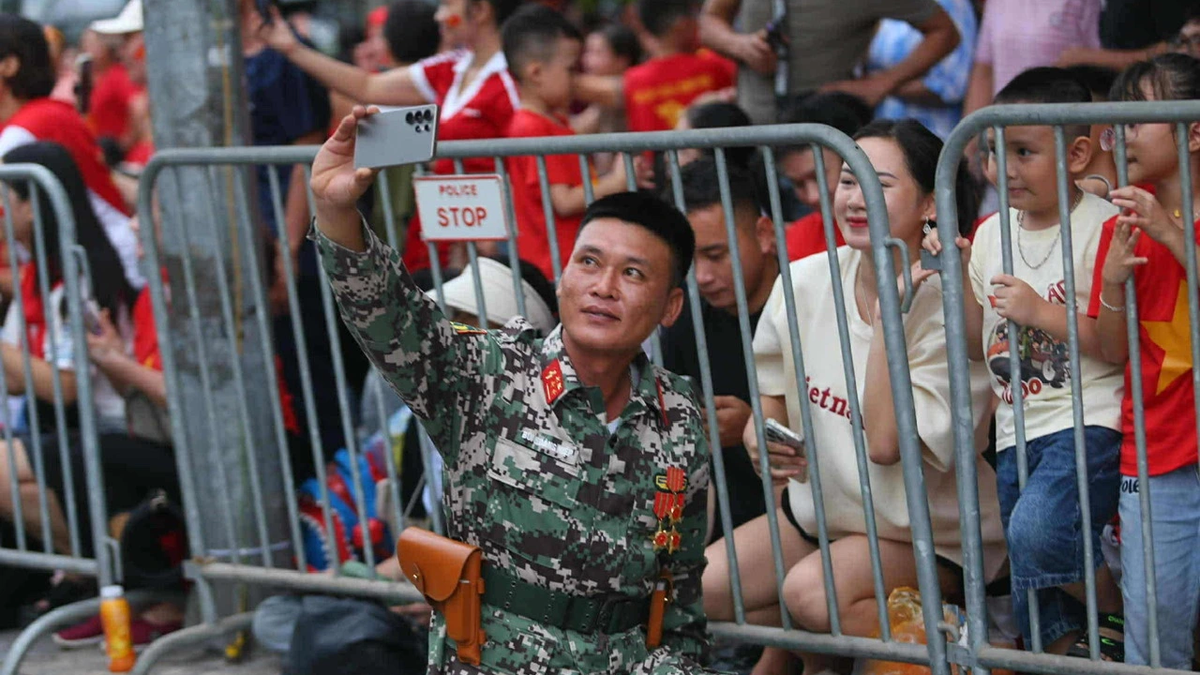
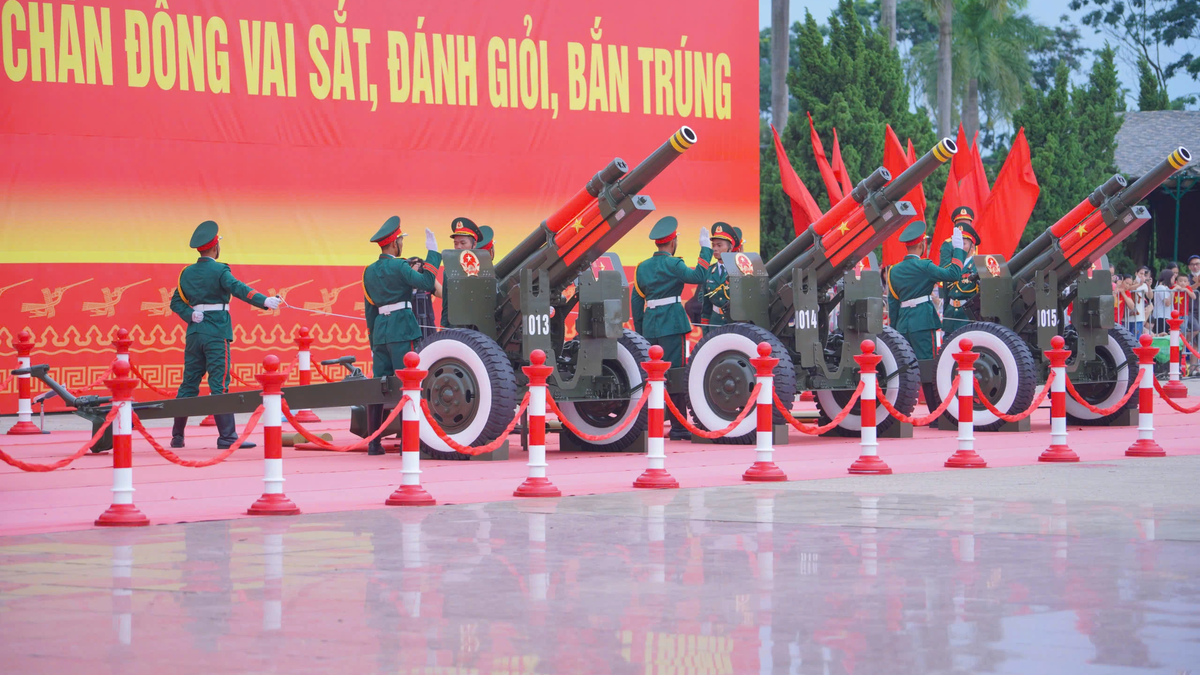
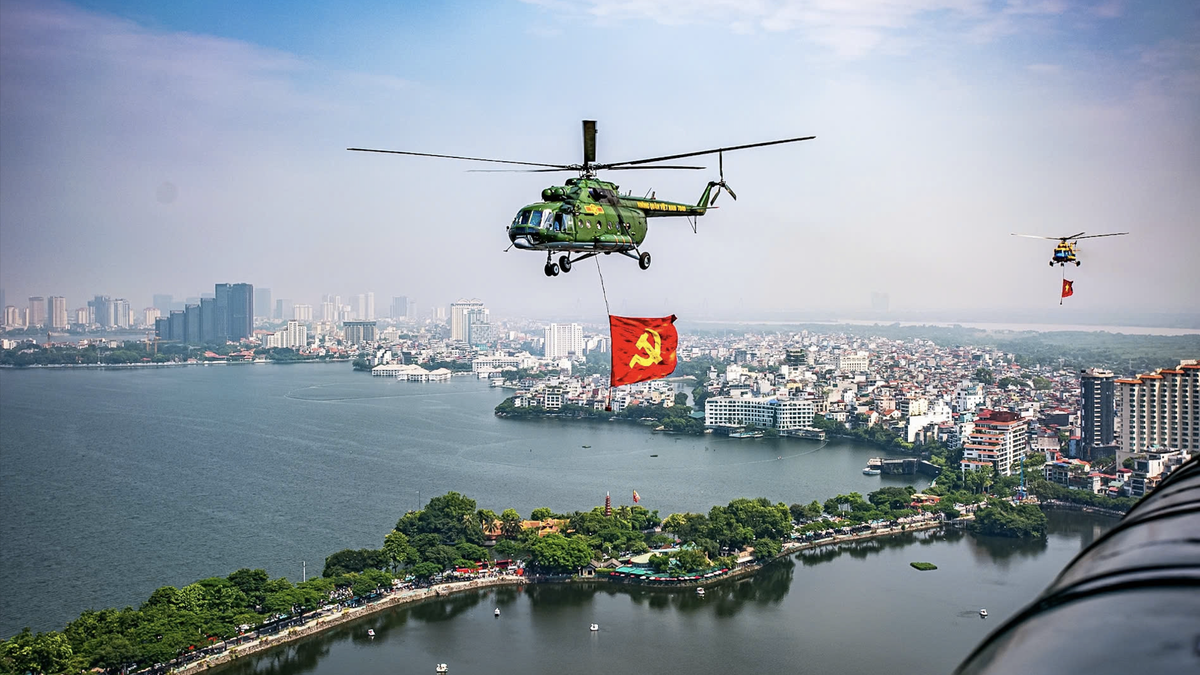
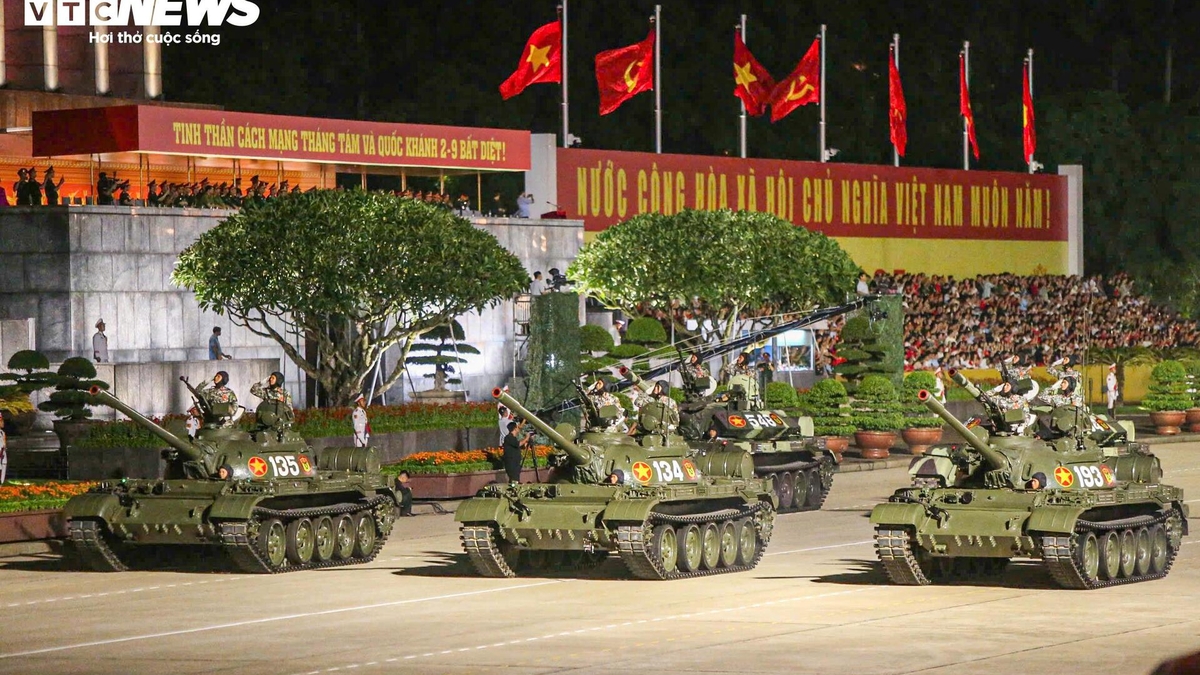
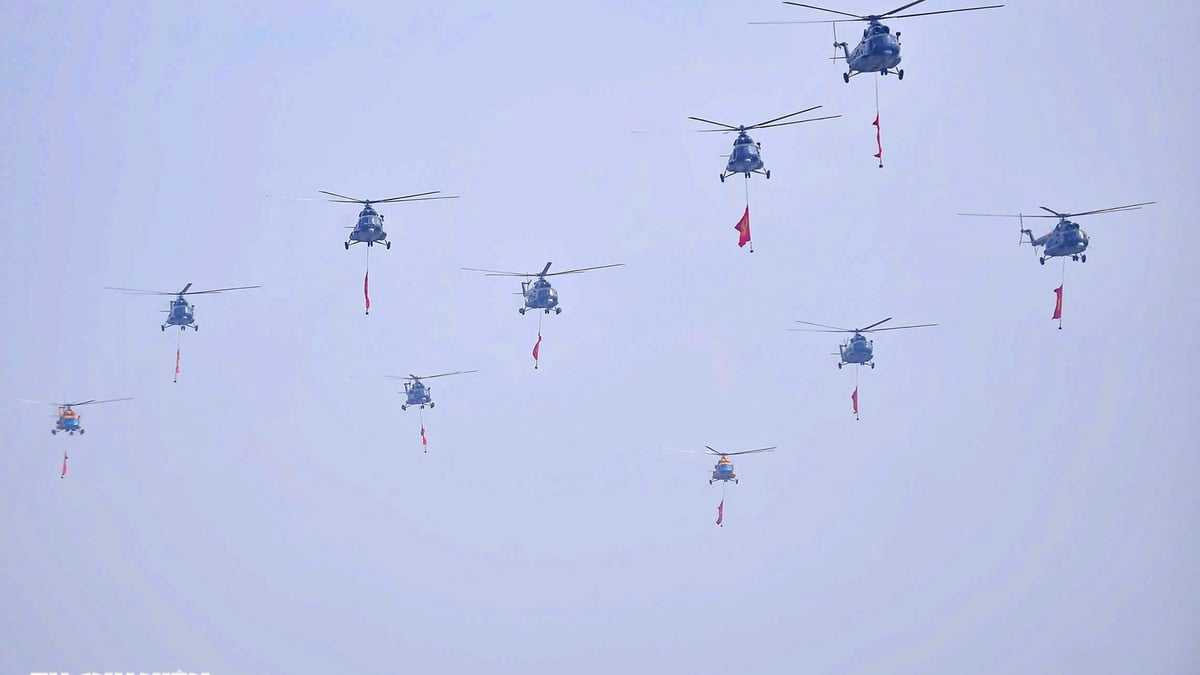
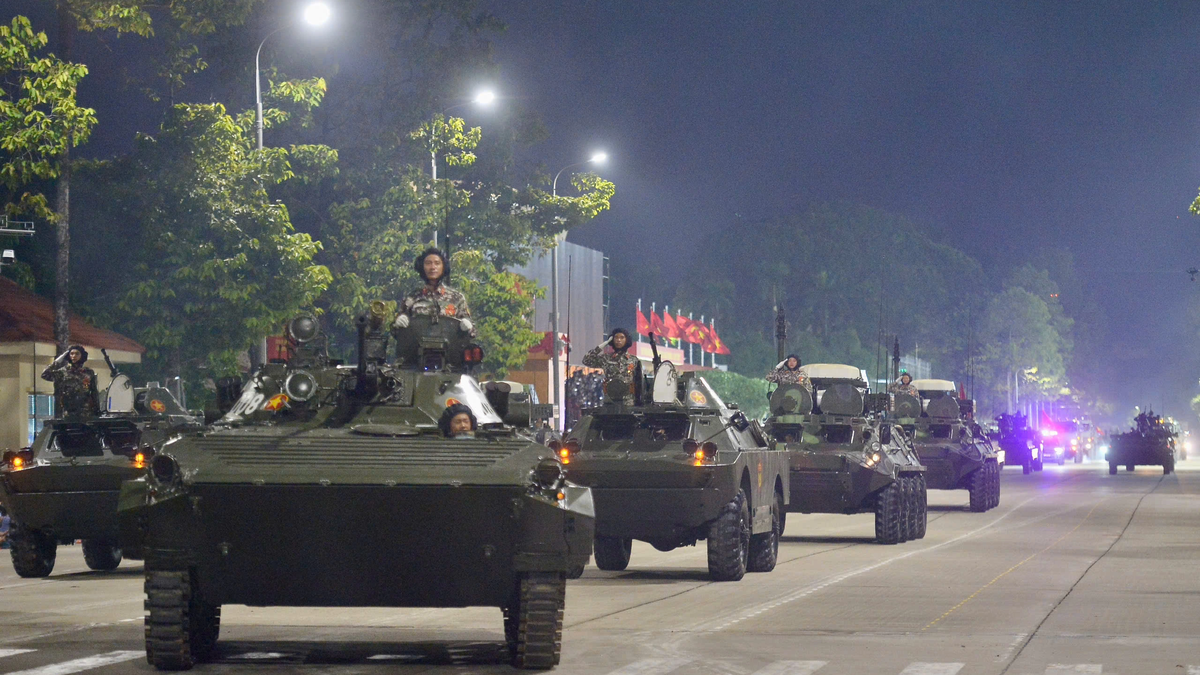
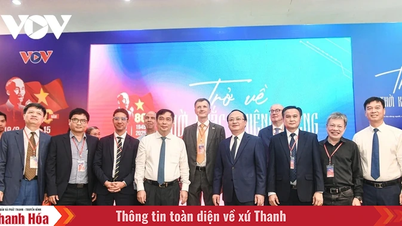

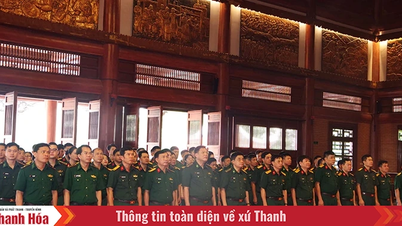
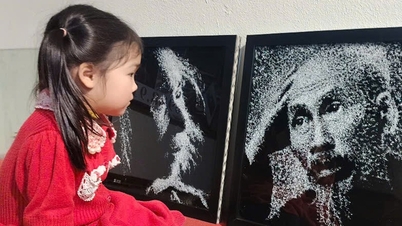



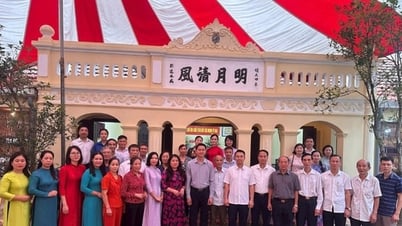

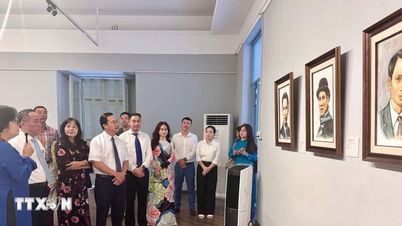



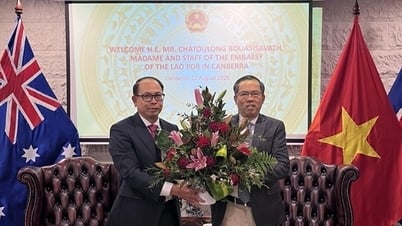
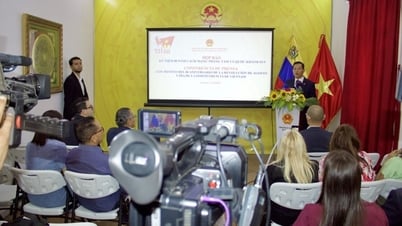
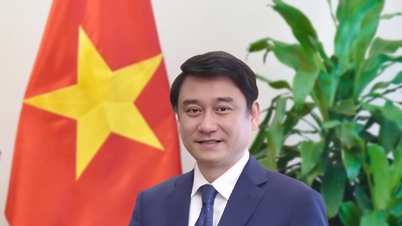
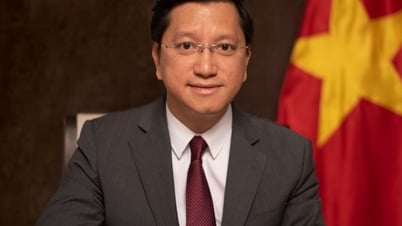
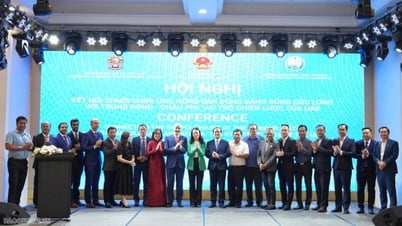




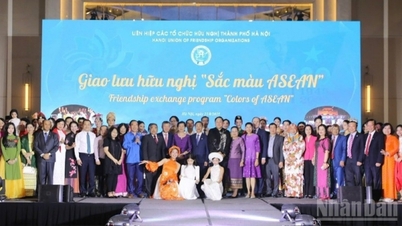
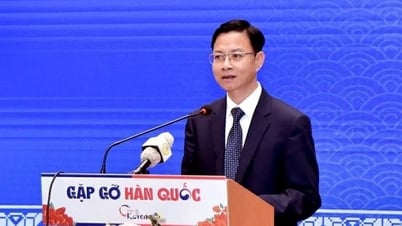
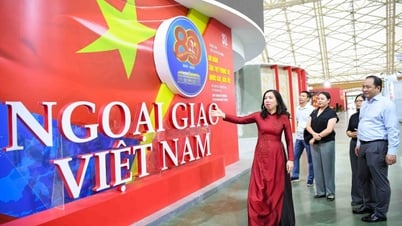
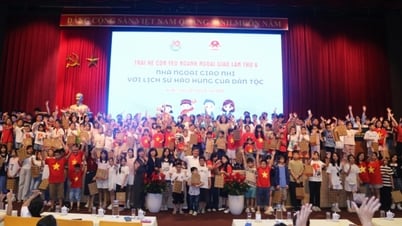
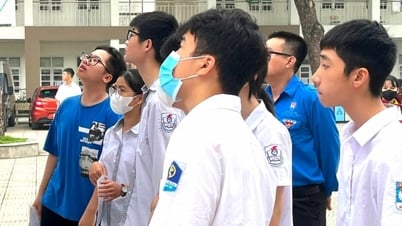
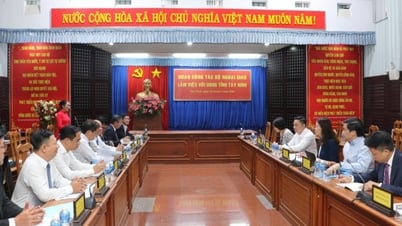
















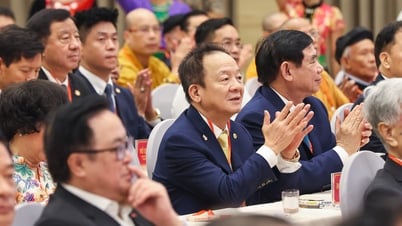












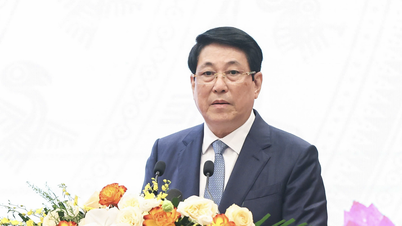







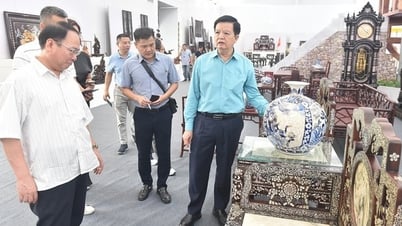

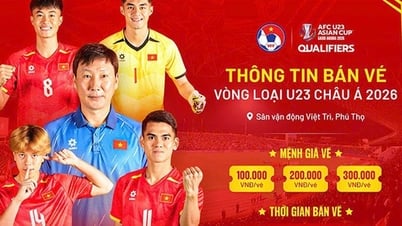






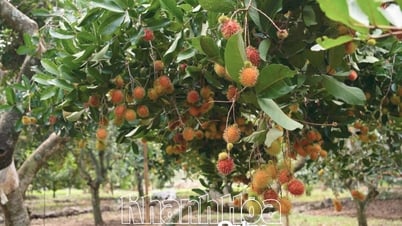

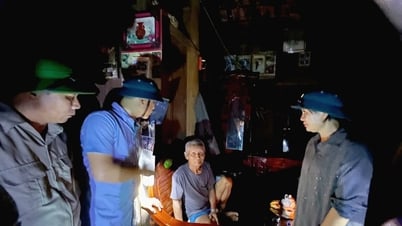

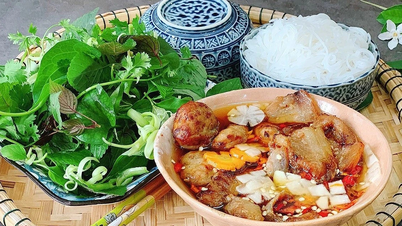

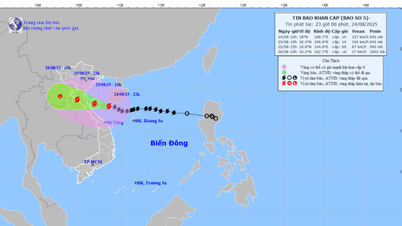
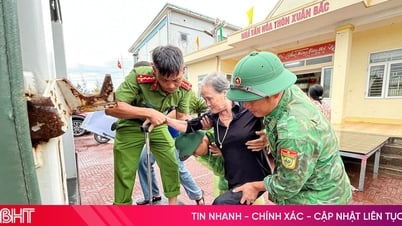

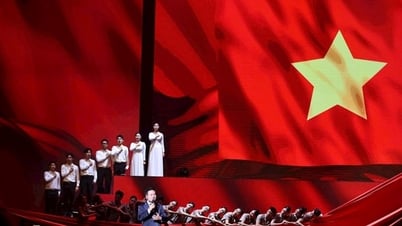











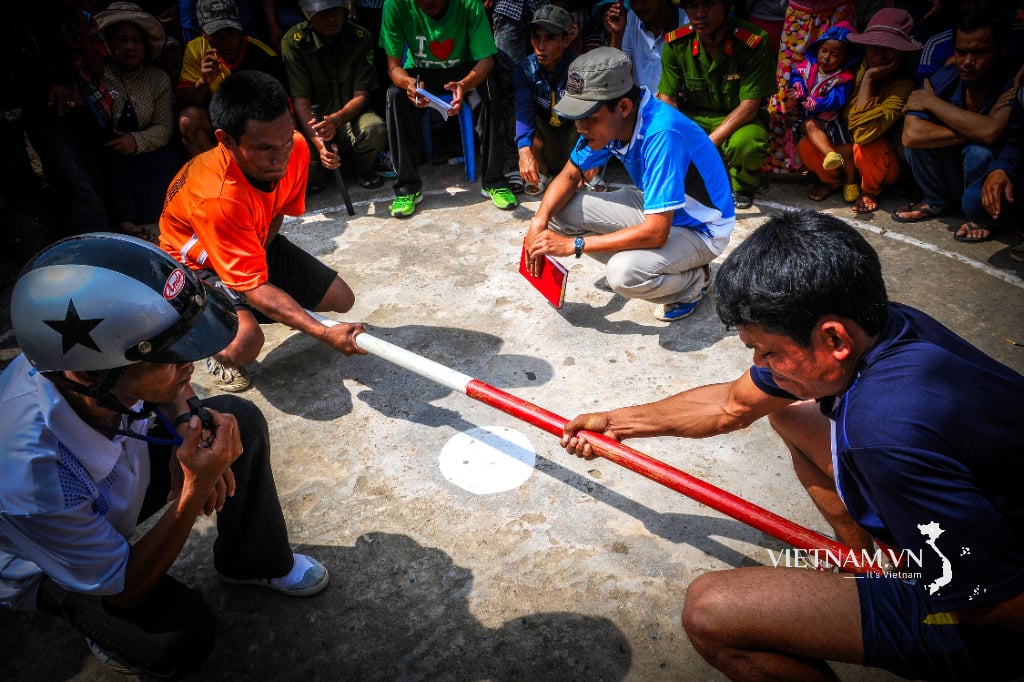
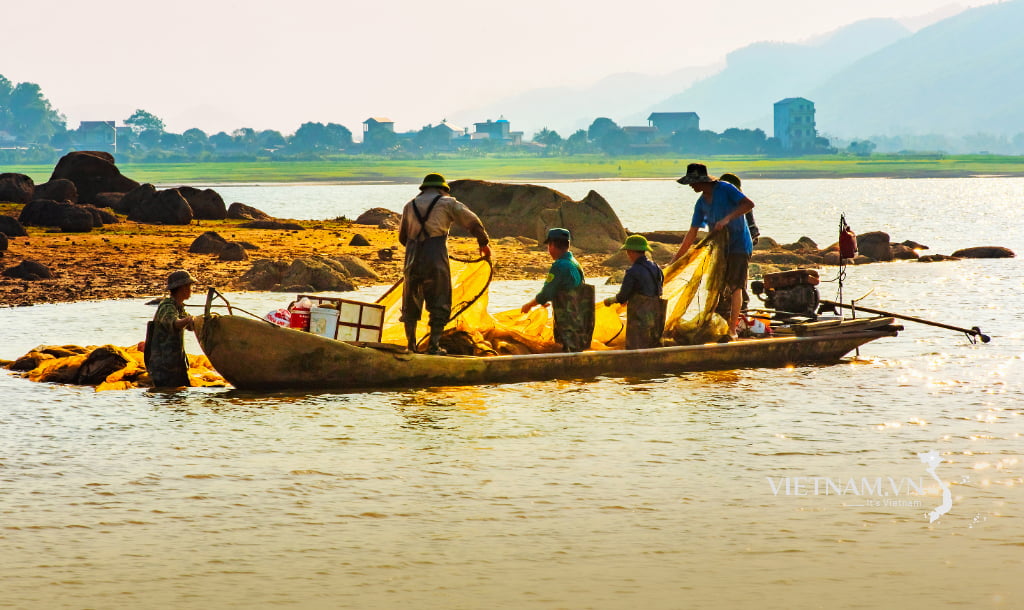

Comment (0)